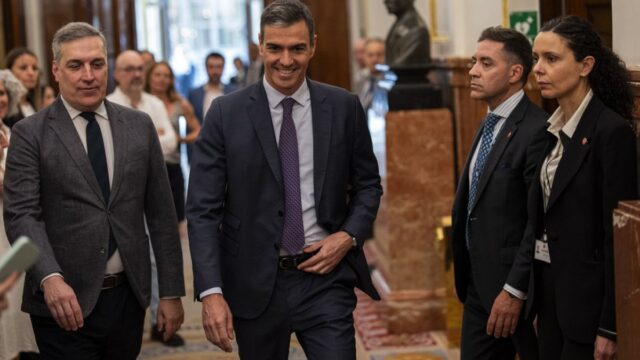The main political blocs have clashed on both international and national issues, with the focus on the rise of the extreme right and future alliances in the next European Parliament.
With the elections to the European Parliament just around the corner, the election campaign In Spain it will be remembered as one of the most angry of recent years. The political debate has revolved around international issues, in the first stage, and has turned towards local issues in the final stretch of the campaign.
“We have been talking a lot about issues that have to do with international politics, but not necessarily related to the European Union. For example, the diplomatic crisis with Argentina or the Recognition of Palestine have been some of the issues that have most marked this first section,” said political analyst Pablo Simón.
However, the eminently European issues such as migration or agrarian protests They were soon overshadowed by domestic affairs.
“During the second half of the campaign,” Simón continued, “especially starting Wednesday, national issues have clearly regained momentum, and this has to do with the imputation and citation to testify about the president’s wifewhich has once again placed the focus on issues that have more to do with domestic politics, turning it into a plebiscite on the government and not so much on issues linked to Europe”.
The campaign has mainly focused on the rise of the far right and future alliances in the European Parliament. “It’s basically the European climate. The climate of opinion is connected with the rise of the far right, and this fits very well with the same dynamics that we have experienced in Spain in recent years. In other words, ‘Spain is not different’. Spain has had discussion topics quite similar to those of other countries around us,” explained Simón.
As the campaign progressed, issues such as the Green Deal and agricultural policies were largely subsumed under broader discussions about potential parliamentary alliances. “Public policies such as the Green Pact or agrarian policy have been overshadowed by the main issue of possible alliances, particularly with the extreme right,” Simón emphasized.
Parties try to mobilize the electorate
As national parties try to gauge their strength in the elections, participation remains a crucial factor. Only 40% of Spaniards usually go to the polls in European elections.
“Most polls indicate that the results we will see in the next elections will not be very different from those of the Congress of Deputies. That is, we will have a delegation more leaning to the right, probably more euroscepticwith the Popular Party and the Socialist Party concentrating most of the support,” Simón explained.
Simón advanced that participation could be higher than in previous European elections, given the impact of European issues on the Spanish electorate.
“The participation rate should rise, given the Polarization what we are experiencing -he explained-. We normally see participation rates of around 44-46%, but our goal should be to get closer to the 51% average that other European countries have.”
But Spain has been immersed in a perpetual electoral campaign in recent years. The polarization that Spanish society is experiencing can generate an increase in participation in these elections or, on the contrary, the boredom of Spanish citizens who have to go to the polls again.







